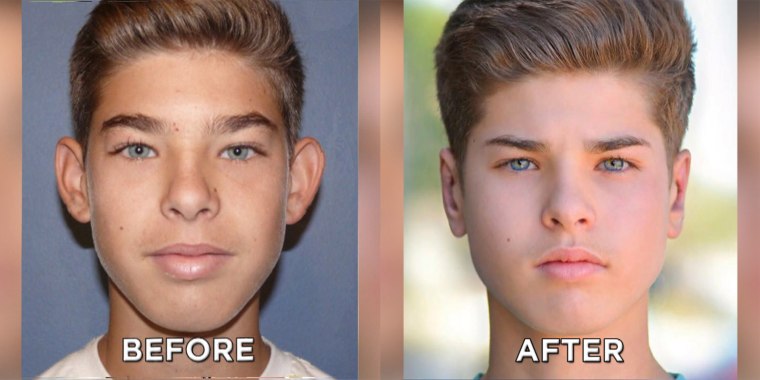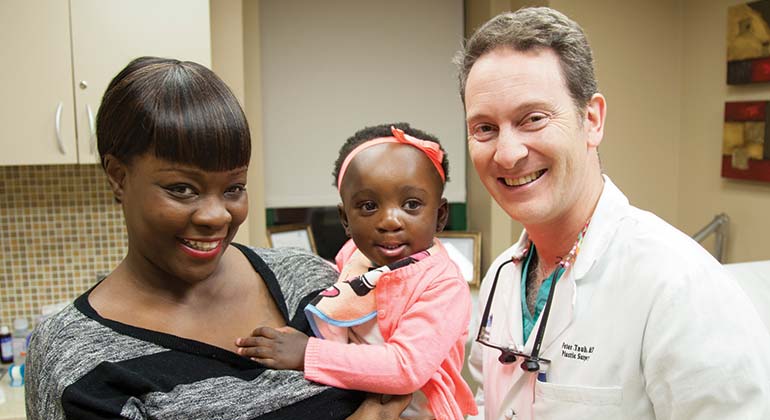Examining the Psychological and Social Factors That Drive People to Think About Cosmetic Surgical Treatment as a Method of Enhancement
The choice to pursue cosmetic surgery often extends past simple visual appeals, intertwining with social and emotional characteristics that warrant thorough assessment. Variables such as self-worth, pervasive social appeal criteria, and the pervasive influence of social media converge to form specific motivations for medical enhancement.
The Duty of Self-worth
Self-confidence dramatically influences an individual's choice to go after cosmetic surgery. Individuals with low self-worth typically regard themselves in an unfavorable light, leading to feelings of insufficiency concerning their physical appearance.

Ultimately, the duty of self-esteem in the decision-making process relating to cosmetic surgical procedure highlights the intricate interaction in between body picture, individual complete satisfaction, and psychological health. Comprehending this partnership is critical for healthcare professionals to guarantee that individuals are making educated choices rooted in realistic expectations and emotional well-being.
Social Appeal Requirements
Influenced by prevalent media portrayals and cultural stories, social elegance criteria play an important function in shaping individuals' understandings of their own bodies. These requirements are usually identified by an idyllic kind of appeal that highlights qualities such as slimness, youthfulness, and symmetry. As these ideals are bolstered via numerous networks, consisting of television, advertising and marketing, and movie, individuals often internalize these messages, resulting in frustration with their natural appearance.
The effects of these social norms extend beyond aesthetic preferences; they can affect self-worth, mental health, and social connections. Individuals that view themselves as disappointing these criteria might experience feelings of insufficiency, prompting a wish for plastic surgery as a way of accomplishing social approval. This quest is typically sustained by the belief that adapting these ideals will enhance not only physical look but likewise social standing and personal gratification.

Impact of Social Media
The effect of social appeal standards is more enhanced by the surge of social media sites systems, where curated images and idyllic depictions of elegance are common. Users are frequently exposed to filteringed system and edited photos, which usually depict unattainable physical features. This exposure cultivates a society of contrast, leading people to assess their own look versus these usually impractical benchmarks.
Social media influencers and stars often promote aesthetic procedures, normalizing the idea that surgical enhancements are a feasible means for achieving societal perfects (plastic surgery rancho cucamonga). The exposure of these enhancements can produce a perception that going through plastic surgery is a common technique, consequently affecting individuals to consider similar treatments as a path to boosted self-confidence and social acceptance
Moreover, the interactive nature of social media sites enables immediate feedback with sort and comments, additionally enhancing the need to adapt preferred charm criteria. Such communications can intensify sensations of insufficiency and drive people toward cosmetic surgery as a way of acquiring recognition. Ultimately, social networks plays a pivotal function fit assumptions of charm, which considerably influences the decision-making procedures bordering plastic surgery.
Social Point Of Views on Look
Throughout numerous societies, assumptions of look are deeply rooted in historic, social, and financial contexts, forming people' sights check out here on elegance and desirability. In lots of cultures, look acts as a significant pen of identification, affecting social standing, expert possibilities, and individual connections. For instance, in some cultures, light skin is often related to riches and advantage, while others may idealize darker complexion as icons of stamina and authenticity.
Moreover, traditional elegance criteria are usually bolstered via social narratives, media representations, and family members affects, resulting in varying perfects throughout different regions (plastic surgery rancho cucamonga). In Western cultures, the focus on young people and physical conditioning often drives individuals toward cosmetic improvement, while in certain Eastern cultures, more refined changes straightened with conventional visual appeals might be preferred
Globalization and the proliferation of digital media have actually further made complex these characteristics, producing a hybridization of elegance ideals that goes beyond geographical limits. As individuals increasingly browse these cultural narratives, the pressure to adapt specific look requirements can lead to the need for plastic surgery, reflecting an intricate interplay of individual goals and cultural worths. Understanding these social point of views is important in resolving the motivations behind cosmetic surgical procedure considerations.
Emotional Impacts of Plastic Surgery
Several individuals seeking cosmetic surgery report experiencing profound mental impacts that can substantially change their self-perception and psychological well-being - plastic surgery rancho cucamonga. The need for physical improvement often comes from underlying concerns such as reduced self-worth, body dysmorphic problem, or societal stress pertaining to elegance criteria. For some, the instant post-operative stage can lead to a short-term boost in self-confidence and satisfaction with their appearance, fostering a sense of empowerment
Nonetheless, these favorable sensations may not be withstanding. Research indicates that while some patients experience boosted self-confidence, others might encounter elevated anxiety or clinical depression if their expectations are not satisfied. This discrepancy can emerge from unrealistic ideals perpetuated by media depiction and cultural stories bordering charm.
Moreover, the psychological implications of plastic surgery extend past the individual. Relationships with friends and family might be stressed as social dynamics shift, resulting in sensations of seclusion or alienation. Ultimately, the emotional check out here effects of plastic surgery are complex and complex, requiring mindful factor to consider by both potential people and health care providers to make certain informed decision-making and sensible expectations.
Verdict
Finally, the choice to seek cosmetic surgical procedure is substantially influenced by a combination of self-confidence concerns, social elegance standards, and cultural viewpoints on appearance. The prevalent reach of social media sites even more exacerbates these pressures, promoting impractical perfects that people typically aim to acquire. Understanding these social and emotional factors is vital for dealing with the inspirations behind cosmetic surgery, highlighting the demand for an extra nuanced conversation bordering appeal and self-acceptance in contemporary society.
The choice to go after cosmetic surgical procedure typically prolongs beyond simple looks, linking with social and psychological dynamics that merit extensive evaluation. Ultimately, social media plays a pivotal function in shaping understandings of appeal, which significantly affects the decision-making processes bordering cosmetic surgical treatment.
As individuals progressively browse these social narratives, the pressure to conform to certain appearance standards can lead to the desire for cosmetic surgical treatment, mirroring a complicated interplay of cultural worths and personal goals.In final thought, the decision to seek cosmetic surgery is considerably affected by a mix of self-confidence problems, societal beauty standards, and social point of views on look. Understanding these social and mental aspects is crucial for resolving the inspirations behind cosmetic surgical treatment, highlighting the requirement for a much more nuanced conversation surrounding charm and self-acceptance in modern look these up culture.